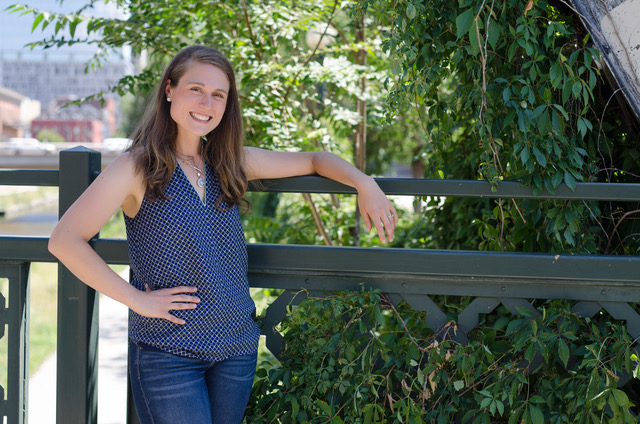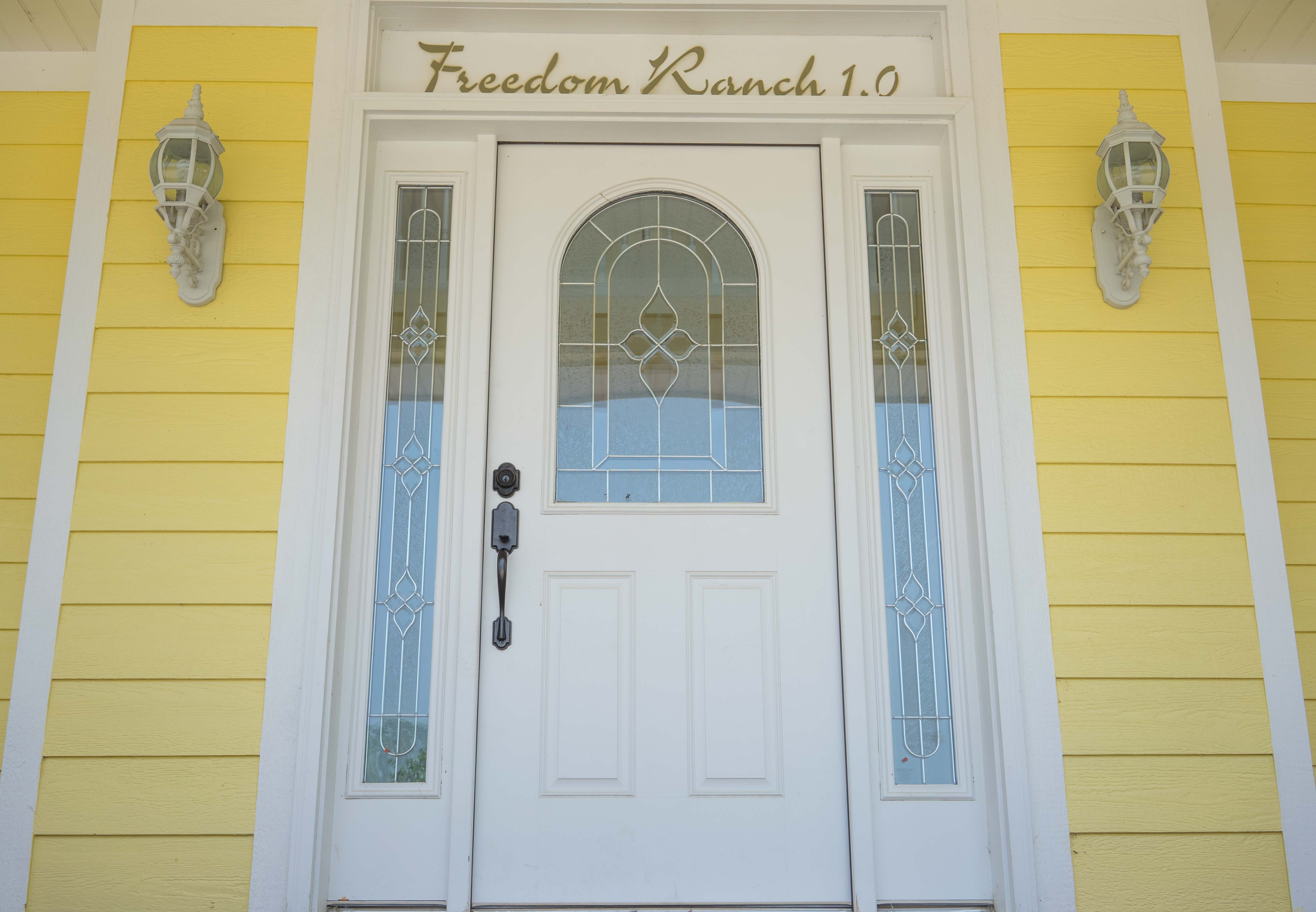The words, “You can be free, if you want to be free,” resonated in Jessa Crisp’s head. She finally found the courage to leave and flew out to Colorado on Feb. 19, 2009. As she stepped off the plane she felt the warmth of the sunlight while the fresh Colorado air filled her lungs. At this point she realized something was different — she was free.
Before she found her way to freedom, Crisp’s life was filled with the sadistic nature of human sex trafficking. Her past is the reality for over 20 million people today.
Crisp was born in Canada. Her experience started out with sexual abuse by her family members. Then it turned into her having to do videos and pose for pornography as a child.
By the age of 10, she was sold to pimps and men throughout suburban areas. Her body was exploited for profit.
She had no idea what the landscape of her hometown looked like because she never had the chance to see it. At a young age, Crisp was not attending school and the closest thing she had to an education was when a sixth-grade math textbook was thrown at her. Even though she lived in a normal suburban neighborhood, her life was far from normal.
“I didn’t know that there was an opportunity to get away,” Crisp said. “Growing up I thought it was a normal existence because it was normal for me.”

Sex trafficking is often thought of as something that only happens in other countries. People generally believe it looks like something along the lines of the Hollywood movie Taken. In reality, a trafficking victim can be anyone’s child, neighbor, classmate or friend. The way it looks can vary from a brothel in India, to the Red Light District in Europe, to the suburban neighborhoods of a local city — such as Denver.
“Victims come from all socio-economic classes,” said Denver’s FBI Victim Specialist Anne Darr. “All of our child recoveries for our task force are domestic children.”
After being sold to pimps in Canada, Crisp was trafficked into the United States.
“It was very, very evil,” Crisp said. “Often times the threat and the reality of torture and abuse can create a very real obligation for those to stay and protect others who are experiencing the same thing.”
The lifestyle Crisp was living continued in a very systematic pattern until she was 21. Then one day in Kansas City a woman approached her. She noted signs and symptoms of forced prostitution and trafficking. The woman gave Crisp her number and told her that she owned a safe house in Colorado and Crisp could call anytime.
There is a list of indicators that patrol officers use to identify human trafficking and commercially sexually exploited victims. Polaris, an organization that works on all forms of human trafficking, identifies these signs as poor mental health, abnormal behavior, poor physical health or lack of control. These are the identifiers the woman used to spot and help Crisp.
The day Crisp decided to make the phone call she was shaking. She buried herself under a mound of pillows and blankets, hoping no one would hear her. The woman on the other end of the phone told her, “You can be free, if you want to be free.”
That was the moment Crisp realized, what she was going through was not normal. When she flew out to Colorado on Feb. 19, 2009, she knew things were different – she could feel the freedom.
“The word freedom holds so much beauty,” she said. “It was like my eyes were open to something I had never seen before that moment.”

The woman that gave her the card in Kansas City was the director of a safe home in El Paso County, Colorado.
Crisp was able to stay at the safe home for a little while. It was a time for her to experience new things and recover. She enjoyed painting, gardening and even had her very first root beer float.
However, it was also a time to deal with a lot of pain. The impacts of trafficking takes a huge toll on victims so it’s important that they receive trauma-informed care to work through it. She had to face the reality of her experiences and how it was affecting her life.
“The hardest part in my recovery process was having to live through those painful memories,” she said. “You have to be able to process that stuff so you can get to a healthy point.”
Her whole life people told her she was stupid, she was only good for prostitution and that if she left she wouldn’t survive. It was resourceful to go back and work through those lies and move forward.
However, at the end of 2009 Crisp had to return to Canada because her visa expired. At this point, she was coerced back into sex trafficking during the 2010 Olympics in Vancouver. She was sold to hundreds of men. Large-scale events including the Olympics and the Super Bowl cause high prostitution rates because there’s a high volume of people in one area and the traffickers and their victims become hidden in the crowds.
Being pulled back into sex trafficking can happen due to the familiarity and vulnerability that comes along with it. A lot of the time sex trafficking survivors return to their victimizer or are re-exploited.
After Crisp escaped the second time she returned to the same safe house in Colorado. The director of the safe house told her if she went to school she would be allowed to stay in the states.
With encouragement and having so many people believing in her, Crisp decided to take them up on the offer. She was accepted into college with a GED and received the Colorado Authors’ League Scholarship in 2013.
During her first term of college, she received a 4.0 GPA.
“I could be a student, I could learn, my trauma doesn’t define me,” she said. “I have so much more to life than what made my existence a reality.”
Crisp found that there is beauty in higher education and how much professors can mentor both educationally and emotionally.
She received a Bachelor’s degree in counseling in 2015 and she is currently working on her Master’s in clinical mental health counseling. She married a man in 2015 who helps make her a stronger woman and they have been happily living in Colorado since.

She currently works at Extended Hands of Hope as the director of the Carriers of Hope mentorship program for trafficking survivors. Extended Hands of Hope opened Avanti House, which is a safe haven for the victims to recover and heal.
“It delights my heart that these young girls and young boys, and also men and women are coming to the surface and that there are resources that they can start to plug into,” she said. “For a while, Denver had no homes for domestic minors, so for Extended Hands of Hope to open up that opportunity with Avanti House and have a mentorship program in Denver for young girls, I think we are now starting to see individuals really take advantage of the opportunities to make changes and to grow.”
Jessa Crisp’s story is shared to shine a light on modern-day slavery. She shares her story and experiences in hopes to put an end to human trafficking.
“From my story, I want people to understand what trafficking is and what it looks like in North America,” she said. “From this, it is my hope that they need to make a difference. It’s not going to end with a survivor speaking up and sharing her story, but it can start a movement.”

“It is important to teach internet safety since traffickers may use social media to recruit vulnerable teenagers who are prone to low self-esteem and self-worth,” said Darr.
To get involved you can help support one of the many trafficking organizations out there. They need support financially, through volunteer work and with advocacy.
If you spot human trafficking or something suspicious, you should contact authorities immediately. If it’s an emergency situation, always call 911, otherwise contact Colorado’s statewide hotline or the national hotline for human trafficking.
Colorado Network to End Human Trafficking (CONEHT): 866-455-5075
National Human Trafficking Hotline: 888-373-7888
Colorado Child Abuse & Neglect Hotline: 1-844-CO-4-KIDS





